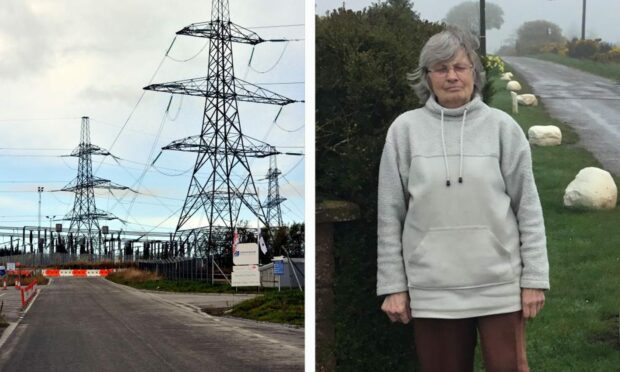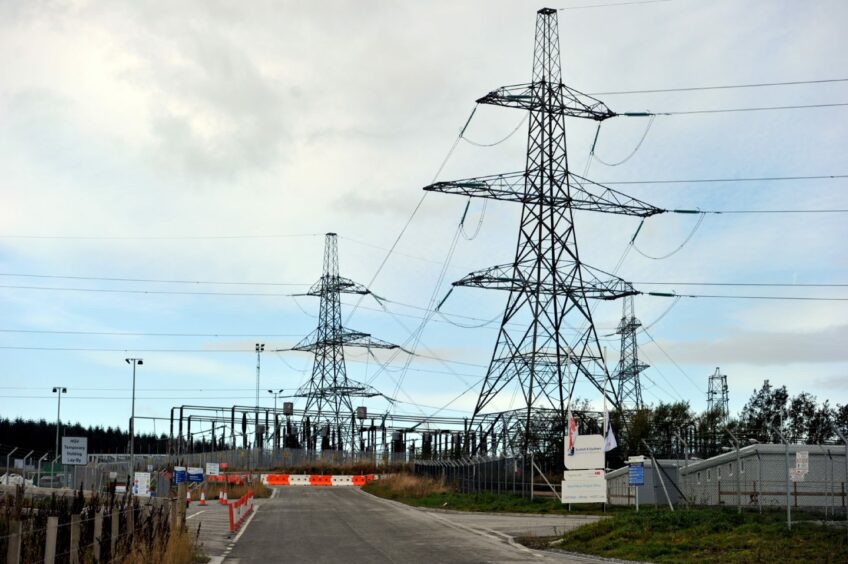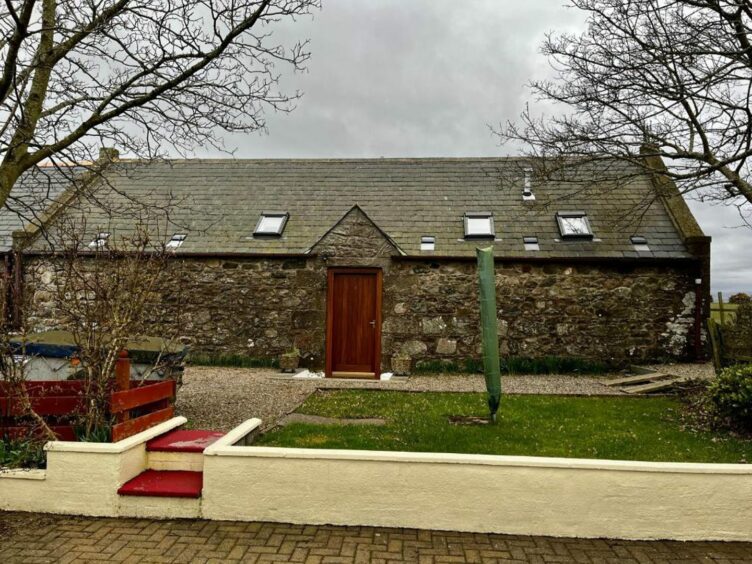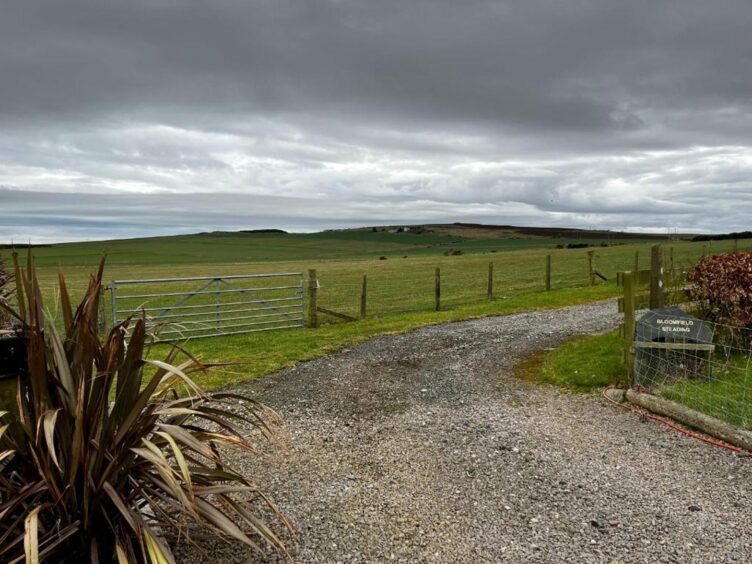A Mearns couple who live in the childhood home of author Lewis Grassic Gibbon fear plans to build two electricity substations will destroy the peaceful setting.
Dorothy and Bill Clark live in the property where Sunset Song author Grassic Gibbon was born, and run a holiday let from the barn he was married in.
They are fighting SSEN’s plans for the two substations at Fiddes and Tealing, which form part of a project for a new overhead line between Kintore and Tealing.
The couple believe the development will “ruin” the area and create a constant hum, disturbing the peace.
SSEN insist the proposals are necessary to enable the connection of renewable energy and to fight against climate change.
The substation at Fiddes will be around 2,300ft by 2,300ft, the same size as the Blackhillock substation near Keith.
Plans will spoil Sunset Song Country
Mrs Clark and her husband live in the historic home near Laurencekirk and operate holiday home Bloomfield Steading, which they rent out to customers throughout the year.
The holiday home is the renovated barn where Grassic Gibbon was married in 1925 at the age of 23.
His novels, which included Scottish classic Sunset Song have been described as a “portrait of Aberdeenshire”, and were often the scene of lavish descriptions of the unspoiled Mearns countryside.
Both houses have been kept in good historical condition to remain faithful to Gibbon’s memory.
But now Mr and Mrs Clark fear the noisy substation will destroy the natural beauty scare off tourists looking for a quiet countryside retreat.
‘Residents are absolutely furious’
However, before moving ahead, SSEN has been asking for feedback from residents.
At a public meeting in Laurencekirk, Mrs Clark said she stood up and told the SSEN “big wigs” her frank views on the plans.
The 79-year-old said: “A number of residents are absolutely furious about the plans.
“There is not a single person in the whole area who wants anything to do with it
“They listened and one lady was writing down my comments and so on, but you just felt it was going ahead and they were just trying to be polite.”
When Mrs Clark raised the possibility of business compensation to SSEN at the meeting, she was told there was none available for her circumstances.
‘It has ruined our life out here’
“It’s going to ruin the area”, Mrs Clark said.
“Who is going to want to stay here now?
“We moved here for the utter peace and quiet of the country. The biggest noise we get is the birds and the tractors in the fields.
“It has just ruined our life out here. If someone gave us a decent offer we would be out of here tomorrow, and I have absolutely loved it out here.”
Why was this area chosen by SSEN?
SSEN says the area was chosen to avoid the geographical mountainous terrain to the west and to minimise closeness to towns and villages.
They said they also had to factor in airport-restricted zones and the A90 and A92 trunk roads.
But they did tell residents they would try and dig the substation down into the ground and plant trees around it to help hide it from view.
SSEN: ‘No decisions taken’
A spokesman for SSEN said: “The east coast phase two 400kV project remains in the early stages of development and no decisions have yet been taken on overhead line routes or substation locations.
“Our consultation presents a number of potential overhead line routes and substation locations based on an initial assessment of key environmental, technical and economic factors.
“We encourage anyone with an interest in the project to provide their feedback which will be carefully considered as we continue to develop this critical national infrastructure.”
Feedback for the proposals can be submitted on the SSEN Transmission website.






Conversation